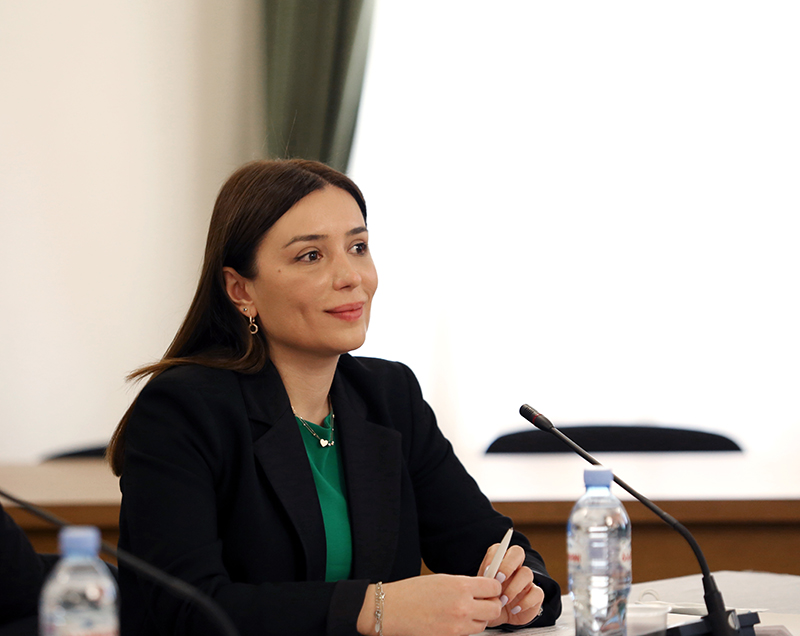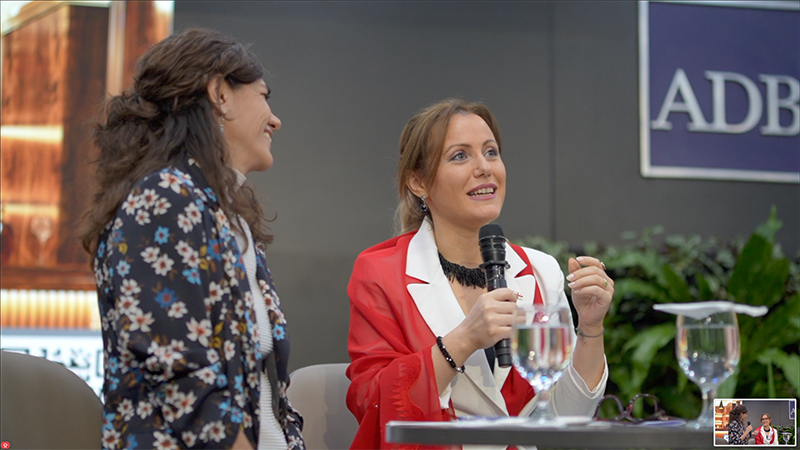Nomination ‘Responsible Consumption and Production’ – Jury Evaluation

Jury members of the nomination Responsible Consumption and Production were Deputy Minister of the Ministry of Environmental Protection and Agriculture of Georgia, Nino Tandilashvili; Director of Sustainability at Ragn-Sells, Pär Larshans; and Environment & Energy Team Leader at UNDP Georgia, Nino Antadze.
Mr. Pär Larshans evaluates the results of and briefly describes the importance of the Corporate Responsibility Award.
”A circular economy is about collaboration, if you try to win by yourself, you will definitely lose./Pär Larshans”. Gdansk, Poland, April 2019.
What does the existence of the Corporate Responsibility Award mean for the ongoing development of Georgia’s corporate responsibility and sustainability culture?
The whole thinking behind a responsibility and sustainability culture is that it is a voluntary action. The benefit is to create a market demand for the product or services that is offered, and you can differentiate by being better than others. To have an award is an excellent way of promoting those best practices. As a positive side effect you will create a list of examples that anyone can be inspired from and that will in the end lead to a new culture in society which will be the better for humans and our planet.
Why was the award interesting for you as a jury member, and what were the challenges you faced during the decision-making process?
I am very curious as a person and I love to learn from other cultures, countries, best practice examples. On the other hand, I am not used to the culture in Georgia and therefore it was a little bit tricky to evaluate the examples due to the fact that you always need a strong grasp of local knowledge and understanding.
What is the level of understanding of corporate responsibility among the nominee companies? You were a member of the jury committee for the nomination of Responsible Consumption and Production, can you tell us about the projects that the companies themselves implemented? What was the quality of the applications, what was the most challenging aspect of the process, and does it meet the existing international standards in terms of corporate responsibility?
A lesson learned for the coming year is that it would be very good to give a better overview in what context the responsibility action is taken. Now there where quite a lot of the nominees that had not given any background at all and then it became very hard to give a better score than 0 or 1. What is means to take on corporate responsibility depends very much on the local/national situation. Today it is a hygiene factor to work with gender balance in Sweden, so it not to us to take corporate responsibility, the same when it comes to take actions to reduce CO2 emissions, it is even a direct financial loss not to do it. In other countries it is instead to take corporate responsibility.




 Search
Search





